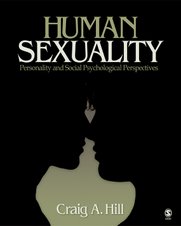Research published this month in the Archives of Sexual Behavior by Diana Sanchez and Amy Kiefer (2007) indicates that having a negative view of one’s own body is not only unpleasant in general. Body shame, as the negative view is called, also makes it less likely that individuals will enjoy sexual behavior. The study further suggests that the lower levels of sexual enjoyment result from greater self-consciousness about one’s body during sexual interaction with a partner.
Sanchez and Kiefer obtained the responses of 320 individuals to an internet survey. The study was announced through message boards for 150 different U.S. Yahoo groups and 20 e-mail lists for University of Michigan undergraduate and graduate students. Respondents ranged between the ages of 17 and 71 years, 38% of whom were men and 62% were women. The vast majority were involved in a romantic relationship. Those who were not in a relationship were asked to report about their experiences in their most recent sexual relationship.
Body shame was assessed using the Objectified Body Consciousness Scale, which includes ratings such as “When I cannot control my weight, I feel like something must be wrong with me”. Sexual self-consciousness was measured with the Body Image Self-Consciousness Scale, consisting of ratings such as “The worst part of having sex is being nude in front of another person”. Sexual enjoyment was evaluated in terms of three different aspects, sexual arousability, difficulty reaching orgasm, and sexual pleasure. Sexual arousability was measured with the Sexual Arousability Scale, with ratings such as indicating how sexually aroused one becomes “When a loved one stimulates your genitals with mouth and tongue”. Difficulty reaching orgasm was determined by two ratings directly asking about the frequency of experiencing orgasm during sexual activity with one’s partner. Sexual pleasure was assessed by three ratings of how pleasurable sexual intercourse, sexual activities, and sexual intimacy with one’s partner are.
Greater shame related to one’s body was associated with a lower likelihood of experiencing sexual arousal and sexual pleasure, as well as a greater tendency to have trouble reaching orgasm. Analyses demonstrated that the negative effect on sexual enjoyment occurred because shame resulted in greater self-consciousness about one’s body during sexual behavior. Sexual self-consciousness had the same detrimental affect on arousability and pleasure for both women and men. However, body shame was more likely to lead to sexual self-consciousness for women than men. In addition, women reported greater body shame and sexual self-consciousness than men.
These results indicate that men and women have the same type of reaction to negative feelings about their body. Yet, women are more susceptible to experiencing such negative feelings.
Although the information collected in the study does not address the way that sexual self-consciousness produces a negative effect on sexual arousability and pleasure, Sanchez and Kiefer suggest several possibilities. First, self-consciousness about one’s body during sex may distract individuals by focusing their attention away from the sexual activities, preventing them from enjoying the pleasure that may result. They may not be able to relax and appreciate the sensations and feelings because they worry about their appearance. A second possibility is that focusing attention on the perceived negative features of one’s body may prevent individuals from focusing on the physical arousal that is occurring, such that they simply do not register and become aware of its pleasurable nature.
The negative views that individuals develop regarding their bodies has been explained by feminist theorists in particular in terms of self-objectification. Self-objectification is the tendency to think of one’s physical self largely in terms of its appearance and to assume the perspective of others who might view one’s body. The tendency leads to the application of cultural standards of what the ideal body should look like. Because U.S. society has created such extreme standards for beauty, especially for women, and because appearance has been elevated to such a high position of importance, women are particularly likely to experience self-objectification and the negative emotions that accompany it.
Sanchez and Kiefer suggest that their results point to possible strategies that may be employed in therapy for couples experiencing sexual difficulties. Individuals might be encouraged to develop the tendency to provide positive feedback about the body of their partner’s if they are found to experience substantial levels of body shame and self-consciousness. Such a strategy may help the individual to cultivate more positive self-images regarding their body, allowing them to enhance their arousal and pleasurable experience during sexual activity over time.
Sanchez, D. T., & Kiefer, A. K. (2007). Body concerns in and out of the bedroom: Implications for sexual pleasure and problems. Archives of Sexual Behavior, 36, 808–820.
Monday, December 31, 2007
Subscribe to:
Comments (Atom)
